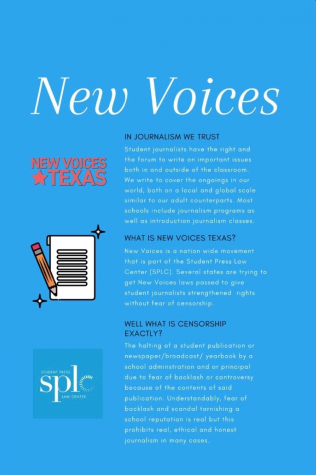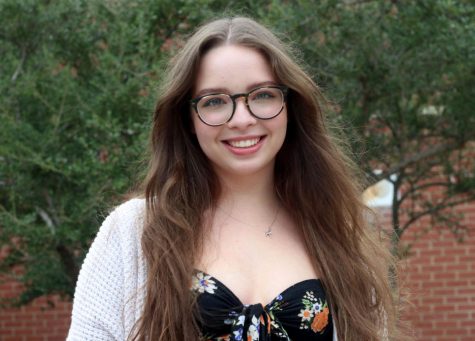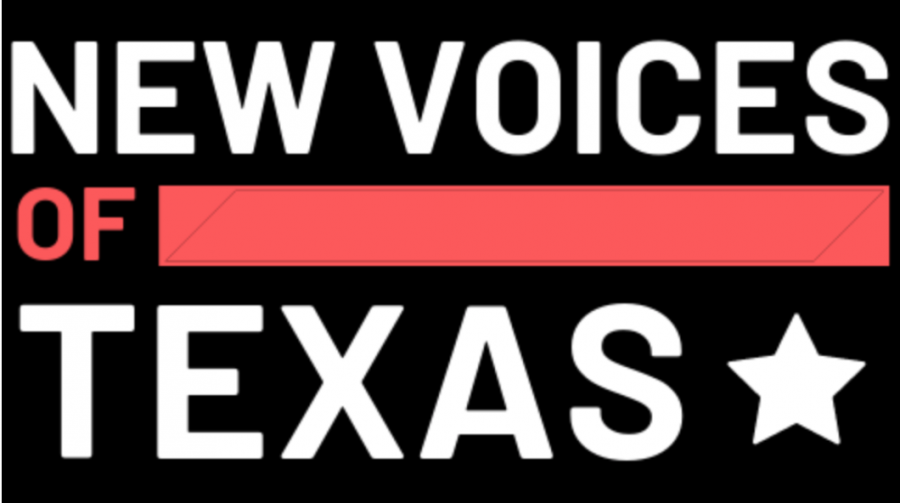Opinion: New Voices Texas fights censorship of student journalists
People seek entertainment, information and news from the media daily. By holding up a code of ethics, publications have vowed to report factual and credible unbiased news. Under the First Amendment, these journalists’ right to free speech is protected, meaning they cannot be silenced or censored. Student journalists however, are not allotted these same freedoms. In a time filled with uncertainty and controversial topics, student journalists are reporters who continue to navigate coverage while experiencing censorship.
In an effort to combat unjust prior review, prior restriction and censorship of students’ stories, New Voices Texas was resurrected for the 2019 legislative session by students at Prosper High School who experienced censorship at the hands of administration. Unfortunately the bill was not passed, but it will be reintroduced this January as part of the 2021 session.
The overall purpose of each New Voices chapter across the country is to ‘cure Hazlewood.’ The Hazlewood vs. Kuhlmeier case in 1988 is a case in which student reporters fought against school administration for censoring stories about teen pregnancy and divorce. The case ruled that the school administrators could censor any publication if they deemed it necessary. The problem with this ruling is that the reason to censor is not well defined, and leaves the decision open to interpretation of school administrators. The Hazlewood ruling allows administration to prior review and prior restraint any stories they deem offensive, which can hinder a students right to expression and a safe space to discuss sensitive topics.
I got involved with this student-led organization because, while I have never experienced outright censorship, that is not the case for other students. The alarming restriction has only worsened across the country this school year, most notably with the incident at North Paulding High School in Georgia. In August, a student was suspended for shedding light on unsafe conditions by posting a picture that showed crowded hallways and mask-less students amidst a global pandemic. This is an example of how censorship among high schools is not isolated to just student journalists, but expands to all students.
While student journalists have long been overshadowed by their adult counterparts, they are now more important than ever before. As schools began to reopen during the COVID-19 pandemic, student safety became a common topic of conversation amongst the news. As concerns were addressed at local and national levels by credible news outlets, student journalists are the only journalists on the front lines daily. Even so, they continue to be censored across the nation by their administration in order to protect their school district’s reputation.
Students should not have to worry about facing irreparable consequences or reprimanding that would impact their permanent record for telling the truth. When you take away a students’ right to free speech, you take away their ability to produce ethical content and uphold the fundamental ideology of democracy. As New Voices attempts to overturn the original Hazlewood supreme court hearing, we are trying to empower all students and make sure that their rights are non-negotiable.

There are many ways to get involved and support this organization, such as attending virtual panels, signing up for their email list, interacting with their social media accounts and working to educate others on student journalists’ rights.

Senior Katlynn Fox is the Editor-In-Chief and this is her second year on staff. In her free time she enjoys listening to music, watching rom-coms and hanging...



